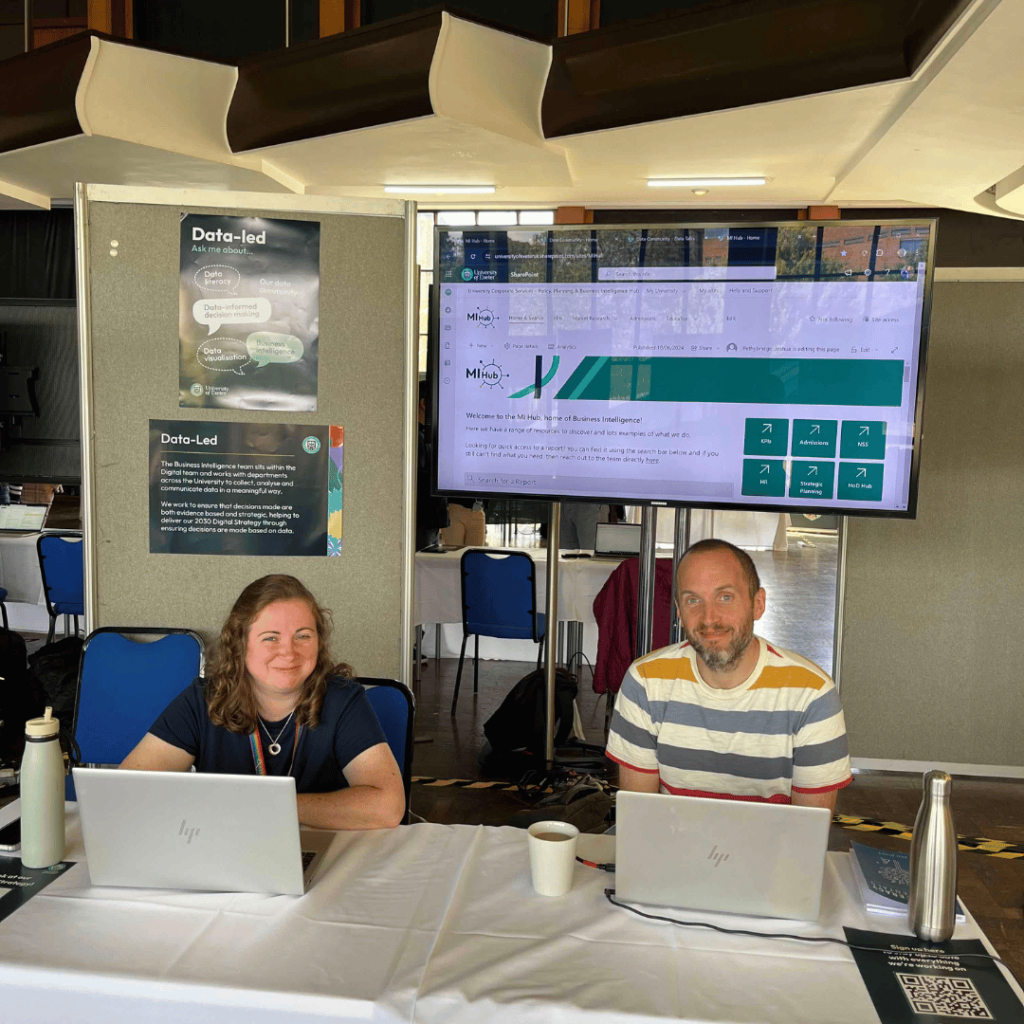Our fourth Data Community gathering at the University of Exeter
We created our Data Community in 2023 to help implement a more data-led culture across the University and to enable our colleagues to improve their data literacy. This community is open to all colleagues at the University who are interested in learning more about data and shaping the current data practises within the University. You can find out more about our Data Community in this blog post.
Read this blog post written by Rebecca Jeavons, our Performance Analyst, to learn about our recent Data Community gathering, giving you insight into what you can expect if you’re a UoE colleague who wants to join the Community.
Data Community updates
The gathering started with information regarding the updates to the Data Community Sharepoint site, where five new tabs have been added to reflect the growth in the community. One of the new pages is the Knowledge Exchange which highlights the importance of sharing data knowledge within the community but also with the wider University. The option of a mentoring scheme is currently being explored, as this was a popular subject in a previous Data Community event, but there was a significantly higher proportion of people keen to be mentees rather than mentors. However, through further exploration we agreed that the hierarchy implicit in a mentoring scheme was not necessary as our members have a diverse mixture of knowledge, skills, and attributes which means we can all learn from one another. If you’re a University of Exeter colleague, also make sure you add your details into the Member Directory before it is shared more widely so all colleagues can get the data help they need and make connections.
Data modelling in Power BI
Shane Jackson, Senior Data Analyst in Strategy, Policy and Planning, spoke about the potential effects of the new premium capacity licensing and how using data modelling can minimise the risk of negatively impacting the performance of each other’s reports. This was a super interesting and useful presentation, especially since there is not yet a formal University policy on how Power BI semantic models are designed. If you are using Power BI for your role, or are interested in learning more, then make sure to join the Power BI Subgroup for bimonthly meetings surrounding best practises and for updates regarding licensing and guidelines.
Group data visualisation
We then broke off into small groups to work on the group visualisation task, this time working with HESA data to answer the business question ‘what international student markets should Exeter be focussing on?’ for the UEB audience. This was a fun yet difficult task to complete, as there was a lot of data to digest and understand before we could answer the question and build some visualisations. However, the main goals of this exercise were to work together to understand:
- Different ways to approach the task
- The different analytical techniques that could be used
- The different tools that could be used
- The different visualisations created
A guest speaker
We finished the session with a talk from Professor Andrew Hillier, Exeter Centre for Mathematical Sciences, about how his research using data can be used across the University to help solve problems that members of the Data Community may be facing. This was a very interesting talk with discussions on how analytic simulations can be used in different ways across the University.
Who can get involved and how?

Membership of the Data Community is open to all University of Exeter colleagues. If you’d like to join us next time, please visit our Data Community Sharepoint site and please complete the membership form.
If you have any questions about the Data Community then please contact Dan Isaac.
– Written by Rebecca Jeavons, Performance Analyst

